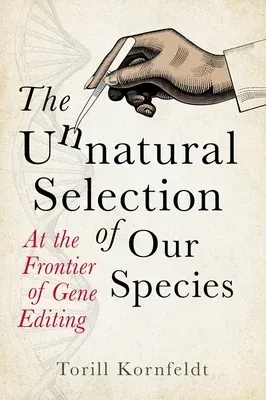Torill Kornfeldt
(Author)The Unnatural Selection of Our Species: At the Frontier of Gene EditingHardcover, 8 October 2021

Qty
1
Turbo
Ships in 2 - 3 days
In Stock
Free Delivery
Cash on Delivery
15 Days
Free Returns
Secure Checkout

Print Length
224 pages
Language
English
Publisher
Hero
Date Published
8 Oct 2021
ISBN-10
180031342X
ISBN-13
9781800313422
Description
Product Details
Author:
Book Format:
Hardcover
Country of Origin:
US
Date Published:
8 October 2021
ISBN-10:
180031342X
ISBN-13:
9781800313422
Language:
English
Location:
London
Pages:
224
Publisher: